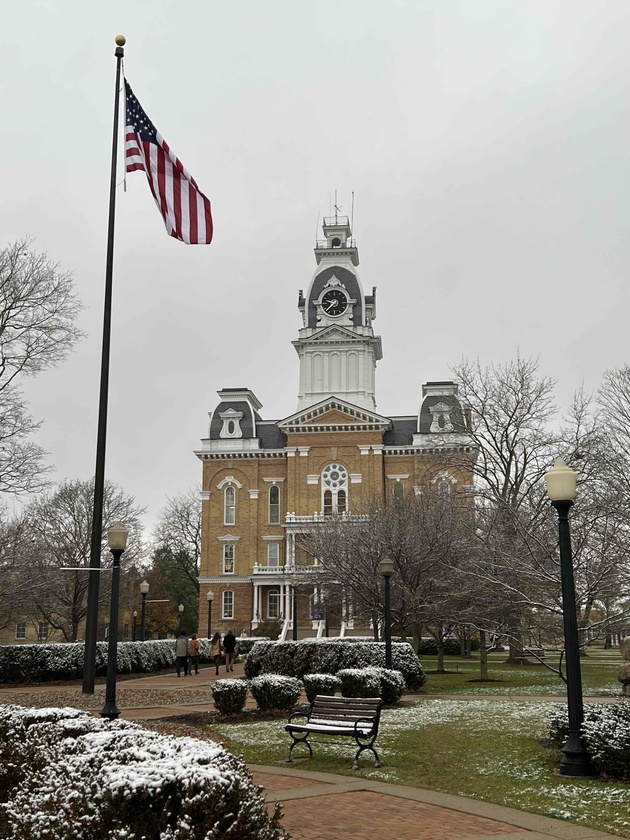I spent much of the day at Hillsdale College in rural Michigan, an institution that has become crucial to the conservative movement. I am involved in some projects there, together with my wife.
We spent an hour in a lecture on political economy. The professor was going over an exam -- a multiple-choice test. Sound boring? It wasn't. The test was about Hayek and Bastiat, two great thinkers.
I attended Harvard College for four years and studied political theory. I never once encountered Hayek or Bastiat, though they are crucial to the classical liberal tradition. I was assigned Marx about five times.
The first time I heard of Hayek was in South Africa, when working for the political opposition. I only read his writing at Harvard Law School, when it was suggested by a friend. I never encountered Bastiat.
I relate this to you at the risk of exposing the deficiencies in my own education to show you just how benighted our elite institutions are. Harvard trains the brightest students to hate liberty, and themselves.
Hillsdale is countering that by offering its students -- who are also among the best -- a true grounding in the thinkers and values that make our society the freest and most successful in the world.
The purpose of education is not to flatter the status quo (Hillsdale teaches about Marx, too). But it ought to transmit society's values while providing the tools to succeed. Hillsdale is in a class of its own.

This week’s portion launches the great story of Abraham, who is told to leave everything of his life behind — except his immediate family — and to leave for “the Land that I shall show you.”
There’s something interesting in the fact that Abraham is told to leave his father’s house, as if breaking away from his father’s life — but his father, in fact, began the journey, moving from Ur to Haran (in last week’s portion). His father set a positive example — why should Abraham leave him?
Some obvious answers suggest themselves — adulthood, needing to make one’s own choices, his father not going far enough, etc.
But I think there is another answer. Abraham (known for the moment as Abram) needs to establish his own household. This is not just about making one’s own choice, but really about choosing one’s own starting point. It’s starting over.
Sometimes we start over in fundamental ways even if much that surrounds us remains the same. Sometimes the journey we have to ...
The story of Noah is familiar; the details, less so.
Noah is often seen as an ambivalent figure. He was righteous -- but only for his generation. What was his deficiency?
One answer suggests itself: knowing that the world was about to be flooded, he built an Ark for the animals and for his own family -- but did not try to save anyone else or to convince them to repent and change their ways (the prophet Jonah, later, would share that reluctance).
Abraham, later, would set himself apart by arguing with God -- with the Lord Himself! -- against the destruction of Sodom and Gomorrah, saying that they should be saved if there were enough righteous people to be found (there were not).
Still, Noah was good enough -- and sometimes, that really is sufficient to save the world. We don't need heroes every time -- just ordinary decency.
Hi all -- as I noted last month, I'm going to be closing down my Locals page, at least for tips and subscriptions -- I may keep the page up and the posts as well, but I'm no longer going to be accepting any kind of payment.
Look for cancelation in the very near future. Thank you for your support!












